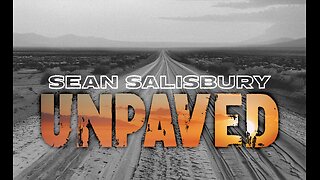Premium Only Content

Minnesota School of the Air - Adventures in Music 2: Composers of Our Time January 1950
The Minnesota School of the Air was an educational radio program broadcast by KUOM (University of Minnesota Public Radio) in the 1940s and 1950s, designed for in-school listening to enrich K-12 education. The episode "Adventures in Music 2: Composers of Our Time," part of the Adventures in Music series, likely aired in January 1950. This 15-minute episode introduced students to contemporary composers of the mid-20th century, focusing on their contributions to modern music. It likely highlighted figures like Aaron Copland, known for Appalachian Spring, or Dmitri Shostakovich, noted for his dramatic symphonies, emphasizing their innovative styles and relevance to the post-World War II era. Presented in an engaging, accessible format, the episode used musical excerpts, narration, and possibly commentary by a music educator to illustrate how these composers shaped the sound of "our time." The program aimed to foster appreciation for new music among young listeners, aligning with the series’ goal of broadening musical education through radio.
Note: Specific details about this episode’s content are not fully documented in available sources, as no script or recording transcript is readily accessible. The summary is inferred from the series’ format, the episode title, and the historical context of 1950s music education, as described in sources like OTRCat.com.
Cast and Crew
Cast:
Narrator/Host: Likely a KUOM staff announcer or a music educator (specific host not documented; possibly a University of Minnesota faculty member)
Performers: Musical excerpts likely performed by pre-recorded ensembles or a small studio group, possibly the University of Minnesota orchestra or choir (no specific performers credited)
Crew:
Writer: Likely a University of Minnesota music department staff member or KUOM educational programmer (specific writer not documented)
Director: Not explicitly credited, likely a KUOM production staff member
Producer: KUOM (University of Minnesota Public Radio), possibly overseen by educational programming director
Music: Pre-recorded selections or live performances arranged by KUOM’s music team
Sound Effects: Minimal, likely limited to transitions or fades handled by KUOM’s technical team
Note: Exact cast and crew details are not documented, as Minnesota School of the Air was a low-profile educational series with minimal archival credits. The above is based on the program’s production context, as noted in OTRCat.com and Lehmberg & Pflaum’s The University of Minnesota, 1945-2000.
News in the United States (Week of Assumed Air Date, January 1950)
Assuming the episode aired in January 1950, the following reflects U.S. news for a representative week:
Cold War Intensification: The U.S. reacted to the Soviet Union’s first atomic bomb test (August 1949), with President Harry S. Truman announcing plans for a hydrogen bomb on January 31, 1950, escalating the nuclear arms race.
Red Scare: The trial of Alger Hiss, a former State Department official accused of spying for the USSR, concluded with a perjury conviction on January 21, 1950, fueling anti-communist hysteria led by Senator Joseph McCarthy.
Economic Growth: The post-war economy expanded, with unemployment at 6.5%. The GI Bill spurred suburban development, and car sales surged, with Ford and Chevrolet dominating.
Civil Rights Stirrings: The NAACP challenged segregation in court, laying groundwork for Brown v. Board of Education. Protests against discriminatory housing practices were reported in Chicago.
Cultural Note: The film Twelve O’Clock High, a World War II drama starring Gregory Peck, was a box-office hit, reflecting America’s fascination with wartime heroism.
News in the World (Week of Assumed Air Date, January 1950)
Chinese Civil War Aftermath: Mao Zedong’s Communist government, established in October 1949, was recognized by the UK on January 6, 1950, straining U.S.-UK relations. The U.S. continued supporting Taiwan’s Chiang Kai-shek.
Cold War in Europe: The Soviet Union tightened control over Eastern Europe, with purges reported in Hungary and Czechoslovakia. NATO’s strategic planning intensified, focusing on West Germany’s rearmament.
Indochina Tensions: France battled Viet Minh forces in Vietnam, with the U.S. considering aid to counter communism. Ho Chi Minh’s government gained Soviet recognition in late January.
Middle East Developments: Israel, established in 1948, faced border skirmishes with Jordan and Egypt. The UN mediated refugee disputes stemming from the Arab-Israeli War.
Scientific Advances: British physicist Klaus Fuchs was arrested on January 27, 1950, for passing nuclear secrets to the USSR, shaking Western intelligence.
-
 LIVE
LIVE
StoneMountain64
4 hours agoBattlefield REDSEC HARDCORE, Ultra Movement, and CRAZY Portal Games
138 watching -
 1:09:44
1:09:44
Russell Brand
7 hours agoFrom Curb Your Enthusiasm to Courage — Cheryl Hines on Hollywood, RFK Jr. & Speaking Out - SF646
139K34 -
 1:30:26
1:30:26
The Quartering
5 hours agoWoke Is Back!
133K61 -
 1:18:21
1:18:21
DeVory Darkins
6 hours agoTrump issues CHILLING WARNING to GOP as SCOTUS hears arguments regarding Tariffs
119K107 -
 3:35:48
3:35:48
Barry Cunningham
7 hours agoBREAKING NEWS: PRESIDENT TRUMP SPEECH AT THE MIAMI BUSINESS FORUM! (MIKE JOHNSON PRESSER)
112K26 -
 2:04:47
2:04:47
The Charlie Kirk Show
7 hours agoOnward | Henderson, Laurie, Miles | 11.5.2025
115K26 -
 2:15:52
2:15:52
Steven Crowder
10 hours agoWho is the Real Myron Gaines | Ash Wednesday
367K488 -
 1:07:53
1:07:53
Sean Unpaved
6 hours agoRankings, Recaps, & Deadline Deals: CFB Shake-Ups & NFL Trades
60.6K3 -
 2:13:33
2:13:33
Side Scrollers Podcast
7 hours agoAsmongold SUED for Emotional Distress + Hasan REJECTED+ INSANE Plane Crash + More | Side Scrollers
71.4K17 -
 1:00:32
1:00:32
VINCE
10 hours agoNYC Has Been Seized By The Communists | Episode 162 - 11/05/25
303K512